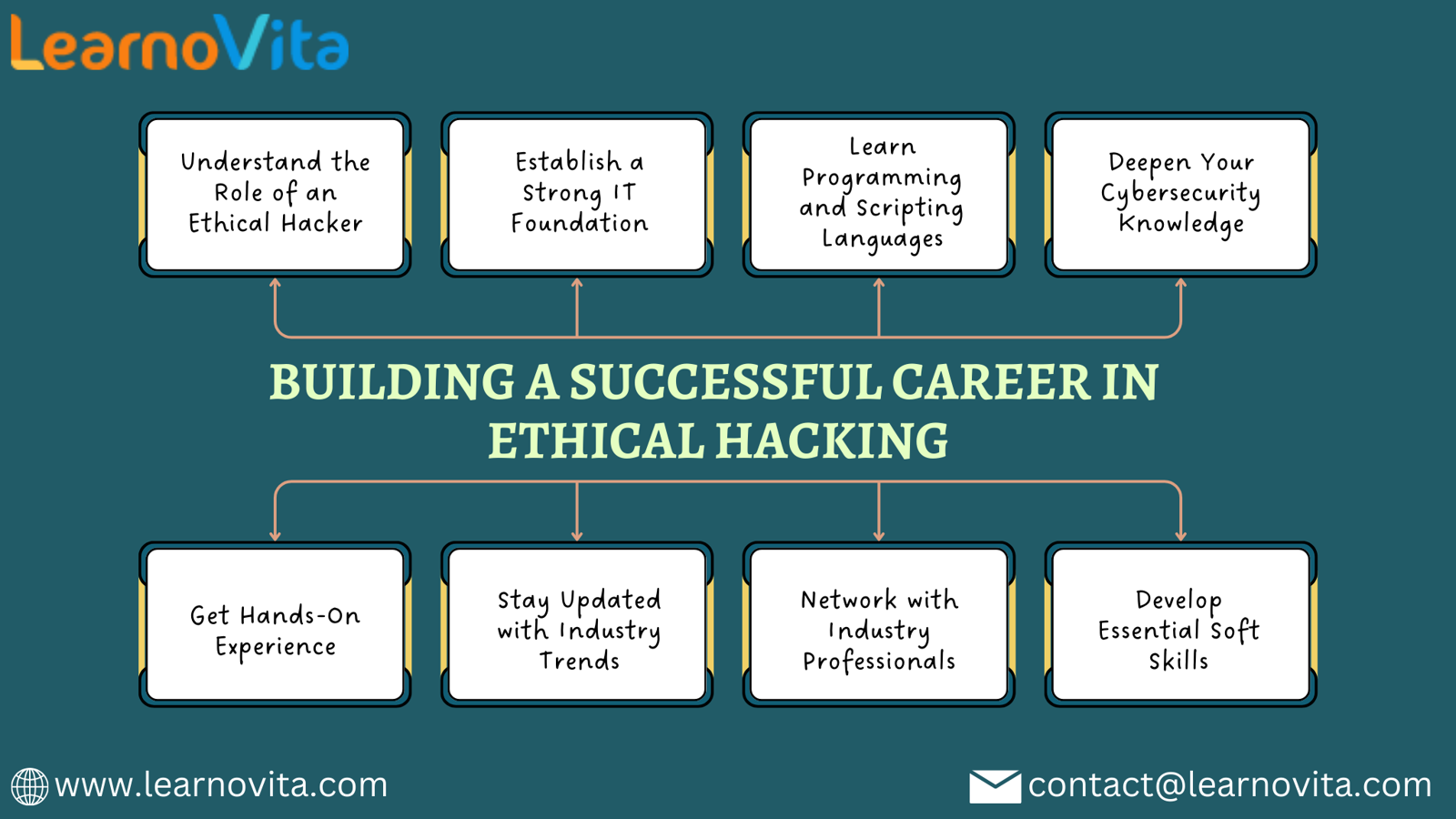The Journey to Becoming a Skilled Ethical Hacker

What is Ethical Hacking?
Ethical hacking, also known as penetration testing or white-hat hacking, involves legally breaking into computer systems to identify vulnerabilities and weaknesses. Ethical hackers work with organizations to strengthen their security measures, ensuring that sensitive data remains protected from malicious hackers.
Key Skills for Ethical Hackers
1. Understanding Networking
A strong grasp of networking fundamentals is crucial for ethical hackers. Key areas to focus on include:
- Network Protocols: Learn about TCP/IP, UDP, and how data is transmitted across networks.
- Network Security: Understand firewalls, routers, and intrusion detection systems (IDS).
- Architecture: Familiarize yourself with different network structures, such as LANs, WANs, and VPNs.
2. Programming Proficiency
While you don’t need to be a programming expert, having a basic understanding of programming languages is beneficial. Useful languages include:
- Python: Great for writing scripts and automating tasks.
- JavaScript: Important for understanding web application vulnerabilities.
- C/C++: Useful for understanding low-level programming and system interactions.
3. Operating Systems Knowledge
Ethical hackers must be comfortable using various operating systems, particularly:
- Linux: Many security tools are designed for Linux, making it essential for penetration testing.
- Windows: Understanding Windows internals is critical since many enterprises use this operating system.
Steps on the Journey to Ethical Hacking Mastery
1. Education and Training

2. Obtain Certifications
Certifications can help validate your skills and enhance your job prospects. Consider pursuing:
- Certified Ethical Hacker (CEH): A foundational certification that covers ethical hacking principles and techniques.
- CompTIA Security+: A well-rounded certification that addresses general security concepts.
- Offensive Security Certified Professional (OSCP): An advanced certification focusing on practical penetration testing skills.
3. Gain Hands-On Experience
Practical experience is vital in ethical hacking. Consider:
- Setting Up a Home Lab: Create a controlled environment where you can practice ethical hacking techniques safely.
- Participating in CTF Competitions: Capture The Flag events challenge you to solve security-related puzzles and vulnerabilities.
- Utilizing Online Platforms: Websites like Hack The Box and TryHackMe offer real-world scenarios to test your skills.
4. Stay Updated with Industry Trends
The cybersecurity landscape is constantly evolving. To remain effective, keep up with:
- Emerging Threats: Follow cybersecurity news to understand the latest vulnerabilities and attack methods.
- Best Practices: Learn about new security measures and frameworks being adopted by organizations.
Engaging with industry blogs, podcasts, and forums is essential for staying current.
5. Network with Professionals
Building connections in the cybersecurity community can provide support and new opportunities. Engage with:
- Local Meetups: Attend cybersecurity meetups to meet like-minded individuals and professionals.
- Online Communities: Join forums and discussion groups focused on ethical hacking to share knowledge and resources.
Networking can lead to mentorship opportunities, job leads, and collaborative projects.
Conclusion
The journey to becoming a skilled ethical hacker is filled with learning and growth. By building a strong foundation in networking, programming, and security tools, and by engaging in hands-on experiences, you can position yourself for success in this vital field.
As the demand for ethical hackers continues to rise, now is the perfect time to invest in your skills and embark on this rewarding career path. With dedication and the right strategies, you can make a significant impact in the fight against cybercrime and contribute to a safer digital world. Start your journey today!

Comments
Post a Comment